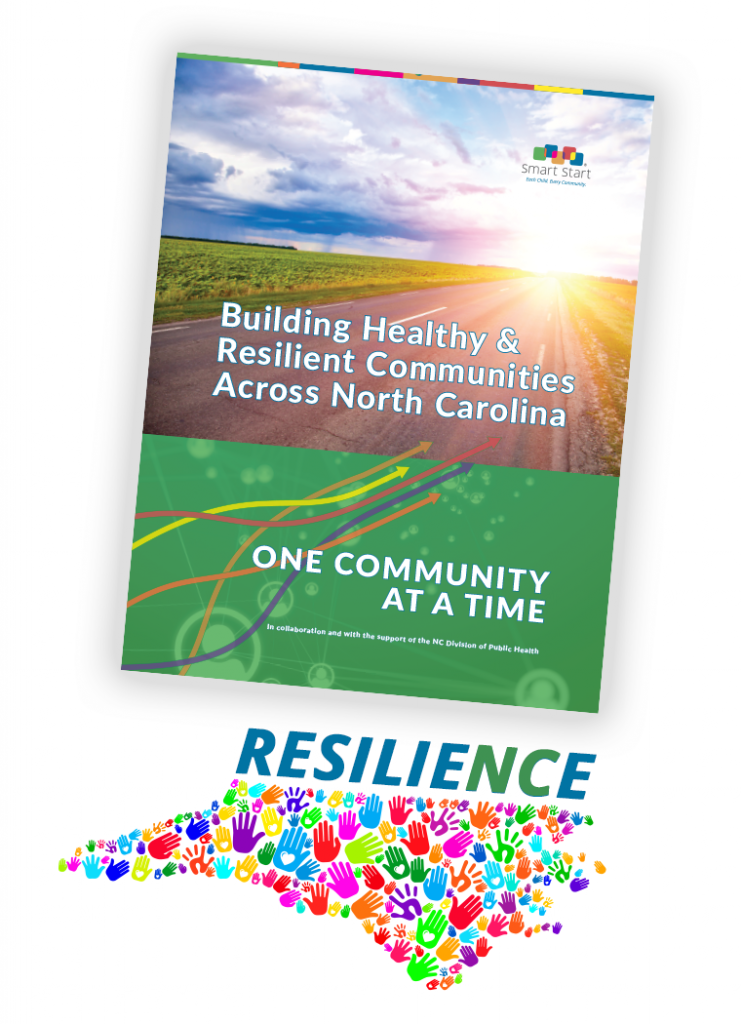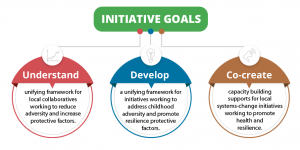Smart Start Releases “Building Healthy & Resilient Communities Across North Carolina” Report
 The North Carolina Partnership for Children (NCPC) has released Building Healthy & Resilient Communities Across North Carolina: One Community at a Time, a landscape analysis that supports local coalitions and collaboratives working to address adverse childhood experiences (ACEs) and build resilience across the state. Created with the support of the Division of Public Health, the new report is the culmination of the first phase of the NC Healthy and Resilient Communities Initiative.
The North Carolina Partnership for Children (NCPC) has released Building Healthy & Resilient Communities Across North Carolina: One Community at a Time, a landscape analysis that supports local coalitions and collaboratives working to address adverse childhood experiences (ACEs) and build resilience across the state. Created with the support of the Division of Public Health, the new report is the culmination of the first phase of the NC Healthy and Resilient Communities Initiative.
Evidence shows the urgency of this work to foster resiliency, with nearly 60% of North Carolina adults reporting that they experienced at least one ACE. ACEs are common, but Black children, those living in poverty, and those in Eastern North Carolina are more likely to be impacted. Over the long-term, ACEs are linked to lifelong negative health outcomes such as heart disease, cancer, obesity, and mental illness.
The new report includes information on community-level cross-sector resiliency initiatives, adversity, and addressing protective factors for Adverse Childhood Experiences (ACEs). It shows the need to focus on establishing a continuum of support for not just children but those that support children—addressing the systems around children to ensure a healthier community. It is a powerful tool for local coalitions and collaboratives, establishing shared language, history, and frameworks for action.
NCPC, which leads the statewide Smart Start network, is serving as backbone agency of the NC Healthy and Resilient Communities Initiative, bringing together more than 40 community collaboratives to build resiliency across the state. Launched in 2019, the Initiative is a four-year statewide collaboration that aims to:
- Reduce multiple forms of childhood adversity, including negative social and environmental drivers of health.
- Increase protective factors and positive childhood experiences (PCEs) for children, families, and communities.
- Promote Systems change, through community infrastructure and cross-sector collaborations, for preventing, responding to, exposure to toxic stress and trauma.
NCPC has already begun the next phase of the Initiative, reconvening collaboratives to identify needs and next steps. NCPC has hired Resilient Communities Officer Mebane Boyd, who is experienced in creating a trauma-informed community, to lead this work. She will support other community champions to help create a more resilient state.
Organizations or communities focusing on resiliency work can register their contact information with the NC Healthy and Resilient Communities Initiative to engage with others to further support children and families.




